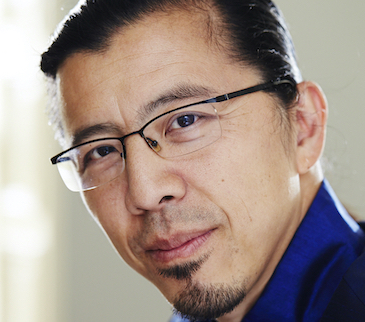Picking the right teacher and school of music:
When looking for a school to study music, I recommend picking the school with the teacher you’d love to learn from. You spend so much time with your private teacher, and your teacher can help you in so many ways.
Take time to do your research not only on the schools you may be interested in, but the teachers and their backgrounds. If possible, take a few lessons with prospective teachers prior to auditioning for the school, to get a feel for their teaching style(s) and to see if you could imagine working closely with them for the next four years as their student.
Take advantage of all music courses:
If you want to be an orchestral musician, focus on music and learn everything you can about the field. All of the music courses are important; do not shy away from music theory as a performance major. If considering a minor, I recommend business. It’s important to have an understanding of how to run a business especially since many orchestral musicians will teach privately. If you’re not considering a minor, it may be a good idea to take a business class or if the school you’re going to offers entrepreneurship courses, take advantage of them!
Also, consider which would be better for you: a conservatory or university education/training. When I was applying to schools I did not think about the differences between a conservatory of music versus a university. With what I know now, I don’t necessarily think that a university degree is the best for someone that wants to be an orchestral musician or performer. Conservatories allow students to be immersed in music while universities expect students to balance liberal arts and their specific area of study which may not be ideal for the aspiring performer.
My Career Path During and After College:
My first orchestral experience was playing flute in one of the Detroit Symphony Youth Orchestras when I was in ninth or tenth grade and I continued playing in orchestra throughout my time at Wayne State University.
I am very lucky to have been able to begin freelancing with local ensembles as an undergraduate student. Freelancing gave me some confidence— a voice in my head started saying, “maybe I can do this.”
Pursuing an orchestral career has not always been my dream. I initially wanted to become a doctor but when I was faced with making a decision, music won.
I began taking orchestral auditions in 2014/2015. My teacher, Sharon Sparrow, pushed me, she encouraged me to work hard toward my goals.
I graduated from Wayne State University in 2015 with a Master’s Degree in Flute Performance. I continued to take auditions and began to get traction in some, advancing to finals.
Being a freelance musician while working a full time job:
While pursuing my graduate degree, I worked at Flute World part-time and also held both a freelancing and private teaching career. After graduating, I began working full-time at Flute World, while continuing to teach and freelance. I would usually practice after work. With that type of schedule, you have to be efficient with your time and energy. I also practiced for about 30 minutes during my lunch breaks. When practicing at work, I’d usually practice in my car. One of the great things about playing the flute is that you can practice anywhere!
My flute studies didn’t stop after graduation. I took lessons about once a month with flutists of the Detroit Symphony Orchestra. It’s important to keep putting yourself in front of people, because it takes you out of your comfort zone. Taking lessons after graduation helped me keep the momentum in progress and to keep me focused on my ultimate goal(s).
In 2017, I left my job at Flute World because I was conflicted. I was getting called to sub with orchestras and for other opportunities as a performer/teacher, and I found myself questioning whether or not I can take time off of work to pursue those endeavors. I knew that, in reality, I would always take the playing job for the needed experience.
In 2018, the Detroit Symphony Orchestra held auditions for their African American Fellowship Program. I’d applied and sent in an audition recording and made it to the live round! I didn’t win but it didn’t stop me from auditioning for other opportunities. The Pittsburgh Symphony had an opening for a fellow in their Orchestral Training Program for African American Musicians and again, I’d applied, submitted an audition recording and was invited to audition live. I didn’t think that I was going to be invited to the live round, so I was very surprised when I received the invitation. I won that fellowship!
I’m still preparing for and taking auditions, in hopes of one day winning my big orchestral job. The auditions keep me going and push me to reach a greater mastery of the flute and of my musicianship. To date, I’ve taken an average of 2-3 auditions per year.

Shantanique Moore
Flutist Shantanique Moore is the eighth recipient of a fellowship from the Pittsburgh Symphony's EQT Orchestra Training Program for African American Musicians (OTPAAM). Ms. Moore is an accomplished freelance musician and flute instructor. She has performed with the Detroit Symphony Orchestra, the Toledo Symphony, and the Fort Wayne Philharmonic, among others.
Shantanique won First Prize in the 2016 Ervin Monroe Young Artist Competition. In 2012, Shantanique won the Wayne State Concerto Competition and in 2013, the Southern Great Lakes Concerto Competition. She has had the privilege of being invited as guest soloist on numerous occasions with ensembles such as the Birmingham Concert Band and Thurston High School's Honors Band, to name a few. During her studies at Wayne State University, she was awarded several musicianship and academic awards.
Her primary teachers are Sharon Sparrow, Laura Larson, and Carrie Wiesinger. She has played in Masterclasses for Mark Sparks, Robert Aitken, William Bennett, and Amy Porter.



Comments are closed.